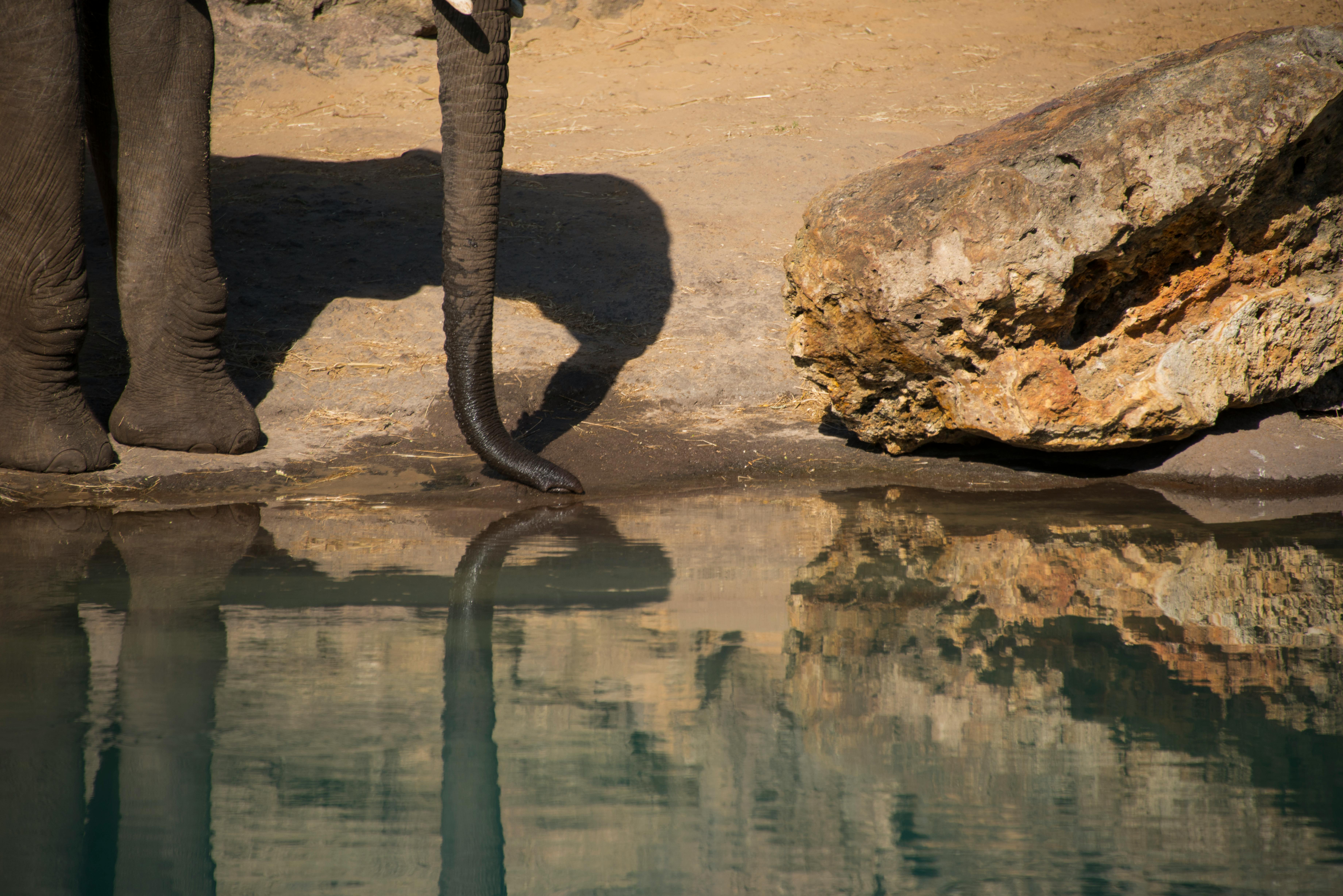Distilled water is a type of purified water that has been boiled and turned into steam, which is then cooled and condensed back into liquid form. It is free of minerals, salts, and other impurities which can be found in drinking water. The process of distilling water removes both beneficial and harmful contaminants from the source water. While distilled water can be used for drinking, it may not be as healthy as drinking regular tap or bottled water that contains trace minerals.No, distilled water is not the same as drinking water. Distilled water has been processed to remove minerals and other impurities, whereas drinking water typically contains minerals and other elements that are beneficial to our health.
What is Distilled Water?
Distilled water is water that has been purified through a process called distillation. During this process, water is boiled and the steam is then collected and condensed back into water. This removes any impurities or contaminants from the water, resulting in a much purer form of H2O. Distilled water can be used for drinking, cooking, and many other purposes. It’s often used in labs and medical settings since it does not contain any of the harmful contaminants or bacteria found in untreated water sources. Additionally, distilled water can be used to fill car batteries and other small machinery that require purified water.
The distillation process has been around for centuries and is still used today due to its effectiveness in purifying water. In addition to removing impurities, it also removes minerals such as calcium and magnesium from the water which can have an effect on taste. While distilled water may not taste as good as untreated tap or spring water, it is much safer for consumption since it does not contain any harmful contaminants or bacteria.
What is Drinking Water?
Drinking water, also known as potable water, is water that is safe to drink or to use for food preparation. It must be free of microorganisms, toxins, and other contaminants that can cause health risks. All water sources, whether natural or man-made, should be tested regularly to ensure it meets certain safety standards.
Drinking water typically goes through a process of purification before it reaches the consumer’s tap. This may include filtration, chlorination, and other treatments that help remove contaminants such as bacteria and viruses. The type of treatment used depends on the source of the water and the contaminants present in it. For example, groundwater sources often require more treatment than surface water sources since they may contain more pollutants from agricultural runoff or industrial waste.
In addition to ensuring safety from contamination, drinking water should also have a pleasant taste and smell free of any unpleasant odors or flavors. Water systems often add minerals such as calcium and magnesium to improve its taste since they can help reduce any unpleasant flavors from chlorine disinfection or other treatments used during purification processes.
Differences between Distilled and Drinking Water
Distilled water and drinking water are two types of water that can be found in many homes. Though they are both considered safe for consumption, they do have some fundamental differences. Distilled water is created by boiling the water and then condensing the steam back into liquid form, whereas drinking water is simply treated with chemicals to make it safe for human consumption.
Distilled water has no minerals in it, so it does not have the same taste as drinking water. Additionally, because distilled water does not contain any minerals or chemical contaminants, it may be a better choice for those who do not want to ingest any potentially harmful substances that are found in regular tap or bottled drinking water.
The main difference between distilled and drinking water is the way in which they are treated. Distilled water is boiled and condensed back into liquid form, while drinking water is treated with chemicals such as chlorine or fluoride to make it safe for human consumption. Additionally, distilled water has no minerals in it while drinking water typically contains trace amounts of minerals such as calcium and magnesium.
Another difference between distilled and drinking water is that distilled water does not
Advantages of Distilled Water
Distilled water has many advantages over other types of water. It is essentially free of all contaminants, including metals, minerals, pesticides, and other pollutants. This makes it much safer to drink than other types of water. Additionally, since it lacks these substances, it has a neutral taste and odor that makes it much more pleasant to drink than some tap or bottled water. It also does not contain any chlorine or fluoride which can cause health issues in some people. Furthermore, since distilled water does not contain any mineral content, it will not leave behind any residue or deposits on surfaces like kitchen counters or bathtubs. This means that you can use it for cleaning and cooking without worrying about staining or discoloring surfaces.
Another advantage of distilled water is its lack of bacteria and other microorganisms that can be found in tap or bottled water. This makes it ideal for those who are immunocompromised or have weakened immune systems as they are less likely to become ill from drinking contaminated water. Additionally, distilled water has a longer shelf life than regular tap or bottled water so you don’t have to

Advantages of Distilled Water
Distilled water has many advantages. It is free of contaminants, minerals, and chemicals, such as chlorine and fluoride. This makes it safe to drink and suitable for use in medical treatments. Its purity also makes it ideal for use in laboratory experiments. It can also be used to make beverages and other products that require pure water. Distilled water has a neutral pH level, making it excellent for use in aquariums and hydroponic systems. It can also be used to clean surfaces, as it does not contain any impurities that could damage the surface being cleaned. Furthermore, distilled water is odorless and tasteless, so it is often preferred over tap water for drinking purposes.
Disadvantages of Distilled Water
Although distilled water has many advantages, there are some drawbacks to consider as well. First of all, distilled water lacks minerals which are essential for human health such as calcium and magnesium. This can lead to mineral deficiencies if the person is not supplementing their diet with additional minerals or vitamins. Additionally, because distilled water has no minerals or impurities, it can
Advantages of Drinking Water
Drinking water is essential for our health and wellbeing. Not only does it help to keep our bodies functioning optimally, but it also has a number of other benefits. Drinking water can help to improve our physical and mental health, as well as helping to reduce dehydration and improve our overall energy levels. Here are some of the advantages of drinking water:
1. Improves Physical Health: Water helps to flush out toxins from the body and keeps the cells hydrated. It helps to maintain body temperature, lubricates joints, and aids in digestion. Adequate hydration can also help prevent constipation, kidney stones, urinary tract infections, and other health problems.
2. Improves Mental Health: Drinking water can help you stay focused and alert throughout the day. It can also help reduce stress levels by calming your mind and body. Studies have shown that drinking more water can result in improved cognitive function, which can lead to better productivity at work or school.
3. Enhances Energy Levels: Staying hydrated helps keep your energy levels up throughout
Advantages of Drinking Water
Drinking adequate amounts of water can provide numerous health benefits. It helps to keep the body hydrated by replenishing lost fluids, which can help to reduce fatigue and improve physical performance. Water is essential for the functioning of all organs in the body and it helps to regulate body temperature. It also helps to flush out toxins and waste products from the body, keeps skin looking healthy, and aids in digestion. In addition, drinking water can help to reduce hunger pangs, making it an effective tool for weight management.
Disadvantages of Drinking Water
However, there are some potential disadvantages associated with drinking too much water. Consuming large amounts of water over a short period of time can lead to an electrolyte imbalance in the body and can cause hyponatremia (low levels of sodium). This condition can be dangerous and may require medical attention. Drinking too much water may also lead to frequent urination, which can be disruptive during activities or sleep. Additionally, drinking excessive amounts of water can lead to bloating or discomfort due to a full stomach.

Conclusion
In conclusion, distilled water and drinking water are both safe for drinking, but they differ in their properties. Distilled water has been purified to remove minerals, but drinking water contains essential minerals that are beneficial for health. Drinking distilled water over a long period of time can lead to mineral deficiencies, which can be detrimental to health. Therefore, it is best to drink both types of water in moderation.
Distilled water can be used as an alternative for drinking water if it is not available or desired. It is important to remember that each type of water has its own benefits and drawbacks, so it is important to consider the pros and cons before deciding which type of water is best for you.

